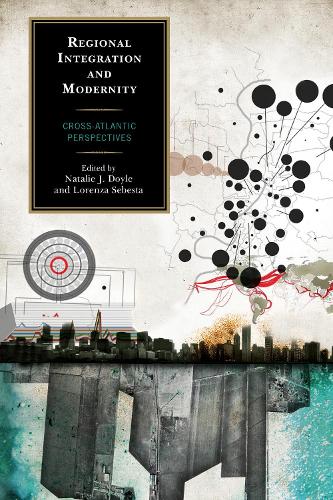
Regional Integration and Modernity: Cross-Atlantic Perspectives
(Hardback)
Publishing Details
Regional Integration and Modernity: Cross-Atlantic Perspectives
By (Author) Natalie J. Doyle
Edited by Lorenza Sebesta
Contributions by Flora Anderson
Contributions by Natalie J. Doyle
Contributions by Michel Dumoulin
Contributions by Luciana Gil
Contributions by Beatriz Larrain
Contributions by Sandra Negro
Contributions by Martin Obaya
Contributions by Jos Paradiso
Bloomsbury Publishing PLC
Lexington Books
26th September 2014
United States
Classifications
Professional and Scholarly
Non Fiction
Political economy
327.408
Physical Properties
Hardback
294
Width 163mm, Height 232mm, Spine 26mm
572g
Description
This book offers a new framework for comparing experiences of integration: regionalization must be reinterpreted as an aspect of modernization, modernization unfolding also at the local, national and global levels. The contributors discuss how and why the different visions of modernity that inform modernization projects encouraged the construction (or rejection) of regional integration, at different times and in different places. It starts with an analysis of plans for the economic integration of Europe in the aftermath of World War I. It shows how integration was identified as the means to modernize the region with a view to helping it overcome political fragmentation and adapt to new conditions of global capitalism. It then turns to the debate on modernization unfolding in the era that constituted the formative period of integration for both Europe and Latin America. It analyses examples of the complex interaction between these two different experiences, as it extends into the present. Finally, it looks at the social and political actors that promoted integration in the two regions and at the discourse they formulated to do so.
Reviews
The book, Regional Integration and Modernity: Cross-Atlantic Perspectives, provides a new and deeply knowledgeable analysis of the integration processes in Europe and Latin America in the context of modernity. The book takes an interdisciplinary approach, including new regionalism theory, that supports the contention that regional integration is a socially constructed phenomenon. The book is, therefore, a valuable contribution to comparative regional integration studies. -- Jody Jensen, director of International Relations at the Institute of Social and European Studies
In this intellectually exciting series of essays the research team assembled by Natalie Doyle and Lorenza Sebesta reveal the diverse strands of European and inter-American ideas that advanced regional integration as a key component of modernization. We meet some familiar (and less familiar) thinkers in a new optic as we are provided a trans-Atlantic genealogy of reformist and federalist initiatives through the course of the twentieth century. -- Charles Maier, Harvard University
Author Bio
Natalie J. Doyle is senior lecturer in French and European studies at Monash University and deputy director of the Monash European and European Union Centre. Lorenza Sebesta, historian, is Jean Monnet professor ad personam at the campus of the University of Bologna in Buenos Aires.
